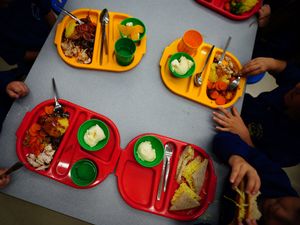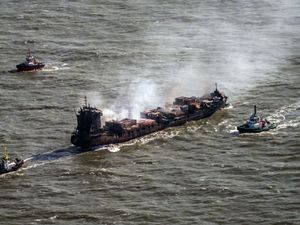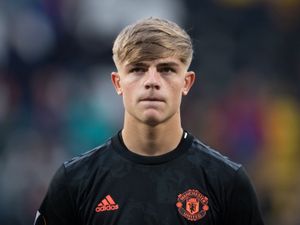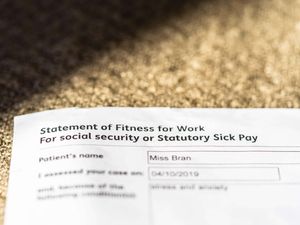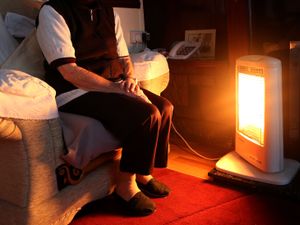What captured the headlines in 2019?
Words and pictures that dominated the news agenda this year.
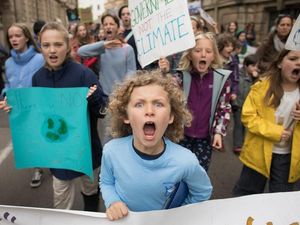
Ongoing political turmoil, foreign diplomacy and the royal family were among the defining themes of 2019.
Brexit dominated headlines once again, as continuing divisions took the public to the polls for a snap election held in the depths of winter.
Boris Johnson secured a crushing victory over Jeremy Corbyn when a string of former Labour strongholds fell to the Tories, giving him the largest Conservative majority since Margaret Thatcher in the 1980s.
The departure of embattled prime minister Theresa May led the way for Mr Johnson’s premiership. Mrs May was not the only political figure to take a step back in 2019 – controversial Commons speaker John Bercow ended his 10-year reign in October.
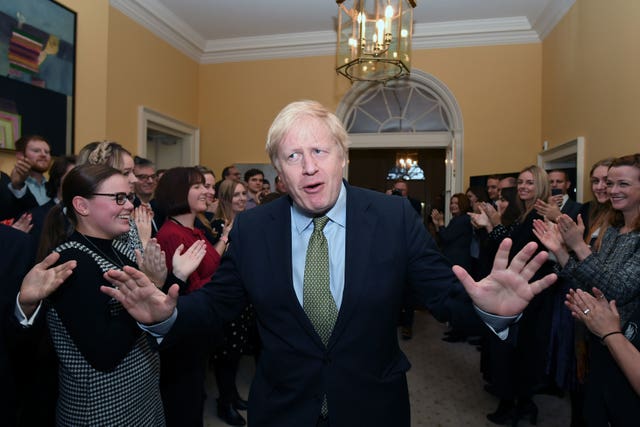
Political turbulence continued throughout the year: there were resignations from both sides of Parliament, new political parties formed and Brexit was delayed for a third time.
Despite a General Election victory, Mr Johnson received a bruising in September after the Supreme Court found that his five-week prorogation of Parliament had been unlawful.
In November, the UK terrorism threat level was reduced from “severe” to “substantial” for the first time since 2014.
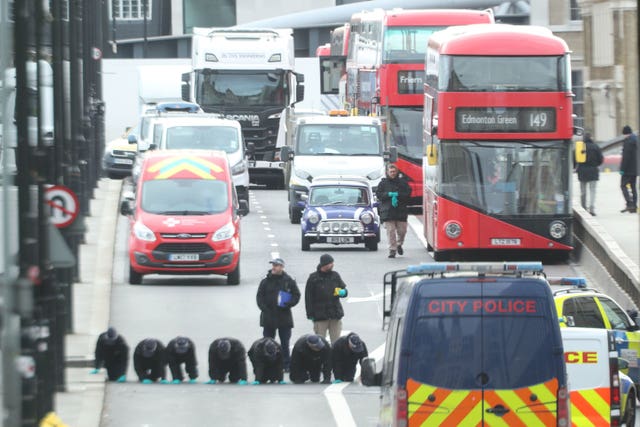
But two weeks before the General Election, campaigning was temporarily suspended when London Bridge became the location for a second terrorist attack in two-and-a-half years.
Convicted terrorist Usman Khan killed 25-year-old Jack Merritt and 23-year-old Saskia Jones, and injured three others during a knife attack.
In a year of public spats with the London Mayor, Donald Trump touched down on British soil twice. Air Force One first arrived in June for the US President’s official state visit, where he was met with pomp, ceremony and protests.
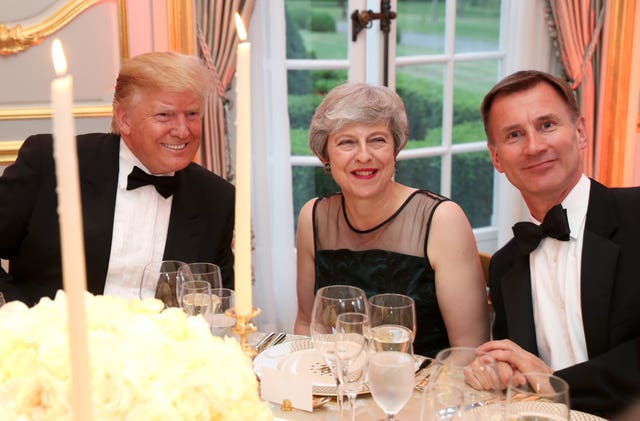
Sir Kim Darroch stepped down as British ambassador to Washington the following month, after a row over leaked emails which were critical of the Trump administration.
World leaders, including the US President, were hosted by the Queen at a Buckingham Palace reception in December, celebrating the 70th anniversary of Nato.
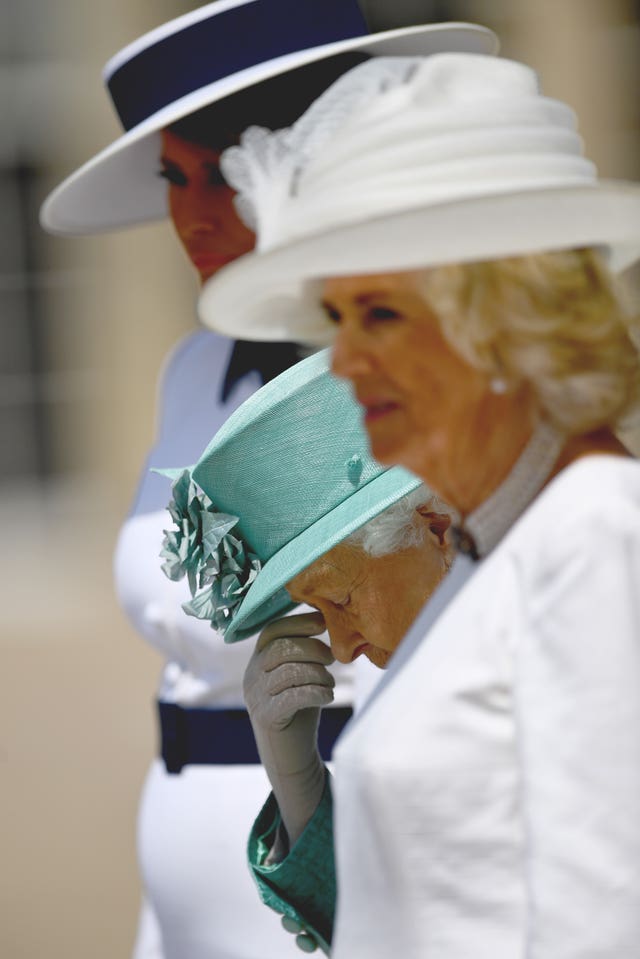
Royal news continued to make headlines throughout the year.
The Duke of Edinburgh surrendered his driving licence voluntarily after being involved in a car crash in January, while the Duke of York stepped down from royal duties in November amid the Jeffrey Epstein scandal.
The Duke and Duchess of Sussex began their tour of Africa on a high in September, just a few months after the birth of their son Archie. But it ended with a statement from the couple condemning the actions of the tabloid press and an announcement that Meghan was to sue the Mail on Sunday.
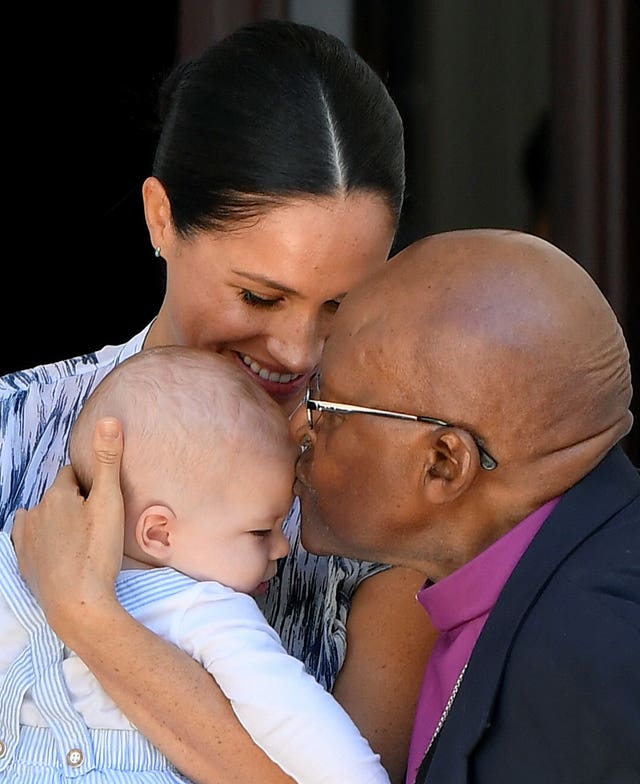
At the request of Jacinda Ardern, the Duke of Cambridge travelled to New Zealand in April to honour the victims of the Christchurch terror attack. Some 50 people were shot dead after two mosques were targeted.
Elsewhere, eight Britons were among 259 people killed in a series of blasts at churches and hotels in Sri Lanka on Easter Sunday.
Images of Paris’s Notre Dame Cathedral in flames shocked the world in April, the same month which saw Julian Assange arrested after famously spending seven years living in the Ecuadorian embassy.
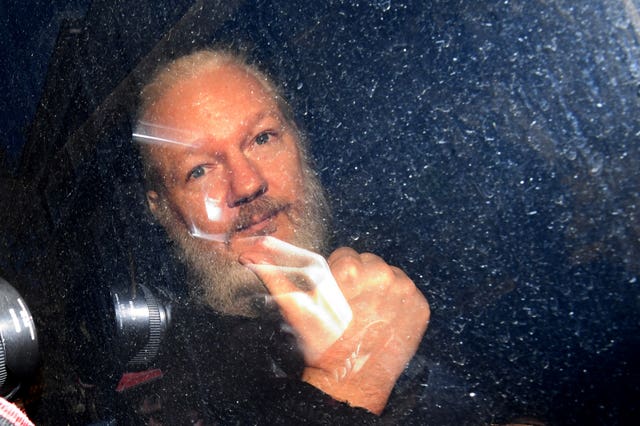
A pink boat blocked off London’s busiest high street for five days later that month as Extinction Rebellion occupied Oxford Circus, prompting a visit from Dame Emma Thompson and mass arrests of protesters.
Placards were out in force throughout the year as youngsters joined global demos to protest against climate change, inspired by Greta Thunberg.
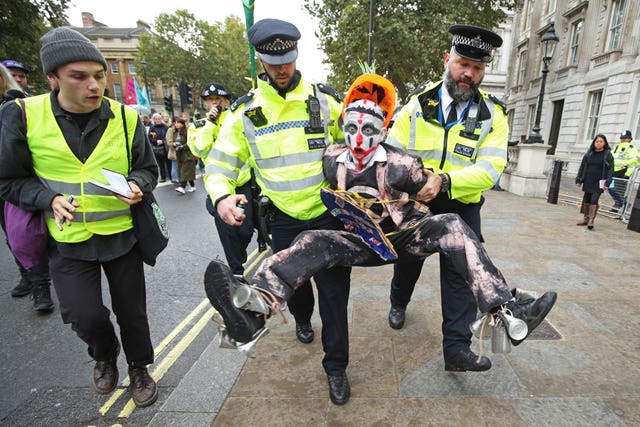
Footballer Emiliano Sala died in a plane crash In January, just days after signing for Cardiff City, and an investigation was launched in Essex after the bodies of 39 people – all believed to be Vietnamese nationals – were found in a lorry container in October.
London’s fire service was condemned for “serious shortcomings” and systemic failures in its response to the Grenfell blaze in an October report, published after the public inquiry’s first phase. Dany Cotton, the capital’s first female fire chief, later announced she would take early retirement at the end of 2019.
A knife crime epidemic continued to grip the nation as more than 130 homicide investigations were launched in the capital alone.
The murder of Girl Scout Jodie Chesney in March was one of the most high-profile killings of the year and two teenagers were jailed after being found guilty at the Old Bailey of knifing the popular teenager.
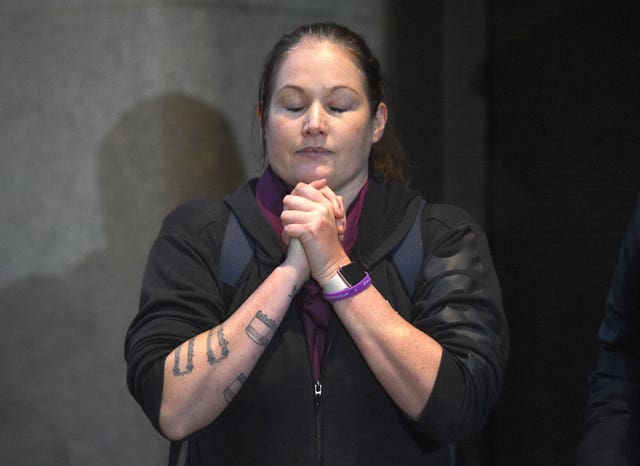
Alesha MacPhail’s killer Aaron Campbell was convicted in March following the six-year-old’s shocking murder in summer 2018. Campbell had his prison term of life with a minimum of 27 years cut by three years following an appeal.
In a court in New Zealand, the family of murdered British backpacker Grace Millane wept after a 27-year-old man was found guilty of killing her.
Back in the UK, Carl Beech was jailed for 18 years for falsely claiming that he had been sadistically abused by figures from the worlds of politics, the armed forces and security services.
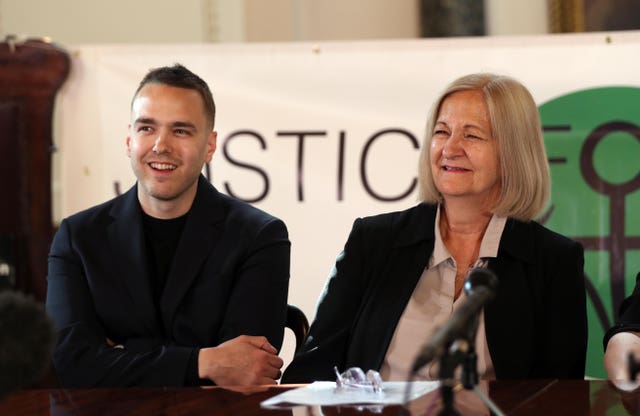
Sally Challen walked free from the Old Bailey in June after her conviction for murdering husband Richard was quashed by the Court of Appeal in a landmark decision in February.
Her lawyers argued she had been the victim of her husband’s coercive and controlling behaviour throughout their marriage and, after admitting manslaughter, walked free following nearly a decade in prison.
In showbiz, grime figurehead Stormzy headlined Glastonbury in June with a politically charged set. Sir David Attenborough also took to the festival’s stage for a surprise appearance, praising organisers for their plastic-free weekend.
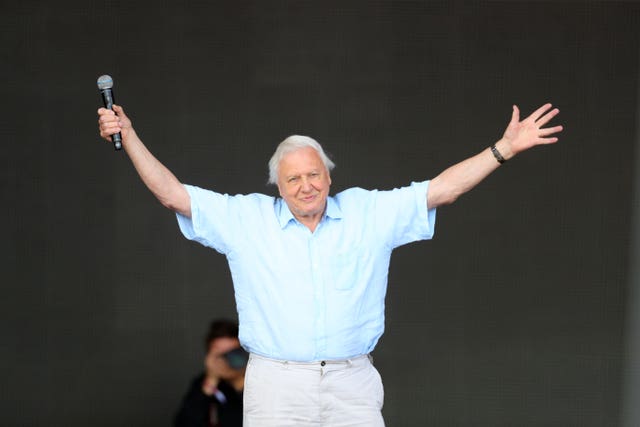
The Jeremy Kyle Show was axed in May following the death of participant Steve Dymond a week after he went on the show.
Tributes were paid to journalist Lyra Mckee, who was shot dead while reporting on rioting in Derry, Northern Ireland, in April, and to Thames Valley Police officer Andrew Harper who died on duty in August.
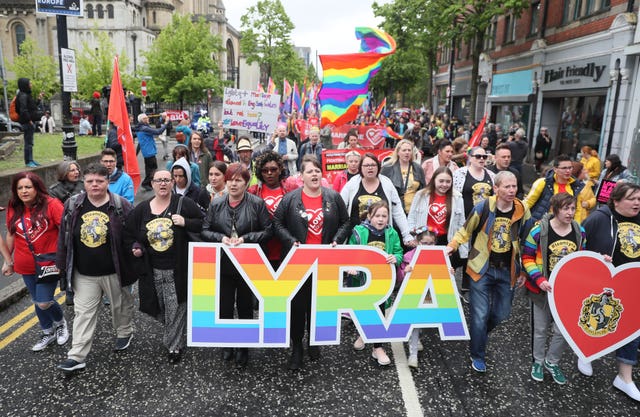
Former foreign secretary Jeremy Hunt said the actions of Iran raised “very serious questions” in July after the British-flagged tanker Stena Impero was seized in the Strait of Hormuz.
Foreign diplomacy topped the agenda throughout the second half of the year in the case of Harry Dunn, 19, who was killed when his motorbike was involved in a head-on collision with a car outside an RAF base in August. Suspect Anne Sacoolas, 42, the wife of a US technical intelligence officer, claimed diplomatic immunity and was able to return to America while Mr Dunn’s grieving family continue to campaign for her extradition.
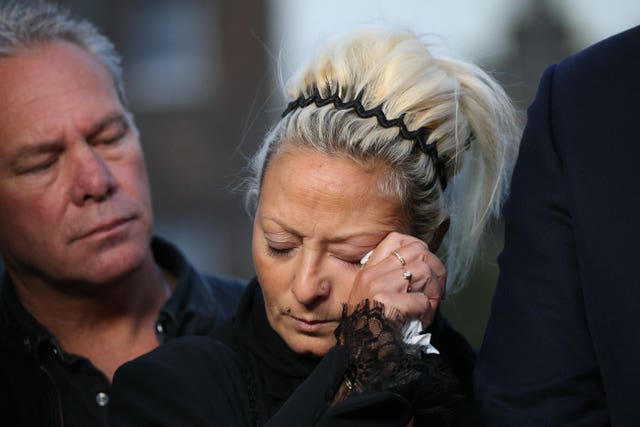
Gavin Williamson was sacked as defence secretary in May following an inquiry into a Huawei leak, just days before broadcaster Danny Baker was fired from BBC Radio 5 Live after tweeting a “royal baby” image of a chimpanzee.
Thousands of jobs were put at risk and holidaymakers were left stranded when Thomas Cook ceased trading in September, triggering the largest ever peacetime repatriation, while Patisserie Valerie collapsed into administration in January.
The UK endured its hottest day on record on July 25 when a scorching temperature of 38.7C was recorded in Cambridge.
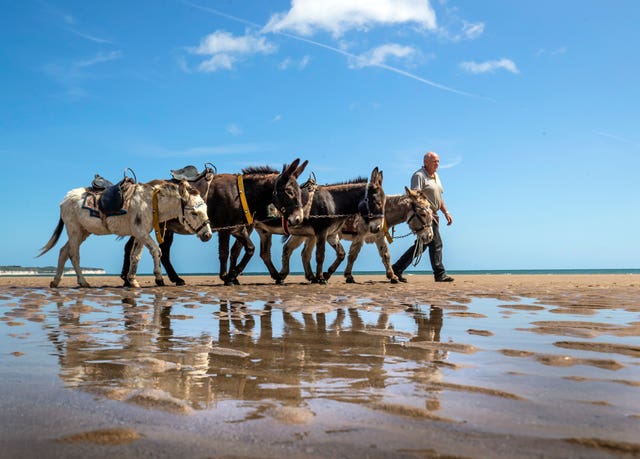
But heavy downpours just a week later saw engineers and the Army scrambling to stop the collapse of Toddbrook Reservoir in Derbyshire, with some 1,500 residents evacuated in Whaley Bridge and surrounding towns.
There was elation during England’s cricketing stars’ dramatic victory over New Zealand to win the men’s World Cup for the first time – but disappointment when Eddie Jones’ men’s rugby team failed to beat South Africa in the Rugby World Cup.
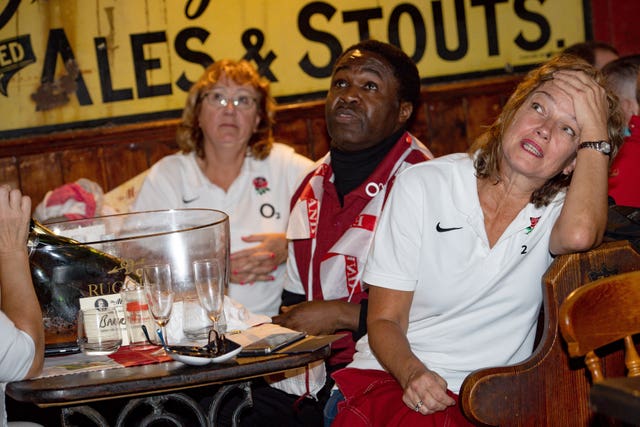
But it was England’s heartbreaking defeat in the Fifa Women’s World Cup semi-finals in July which attracted the highest peak television audience of the year so far at 11.7 million.

